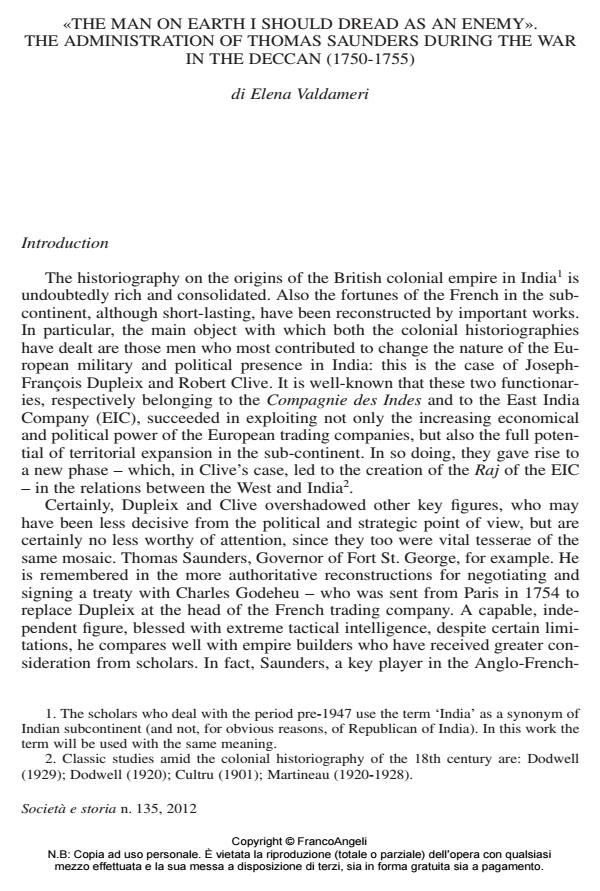"The man on Earth i should dread as an Enemy". The Administration of Thomas Saunders during the War in the Deccan (1750-1755)
Journal title SOCIETÀ E STORIA
Author/s Elena Valdameri
Publishing Year 2012 Issue 2012/135
Language Italian Pages 36 P. 5-40 File size 546 KB
DOI 10.3280/SS2012-135002
DOI is like a bar code for intellectual property: to have more infomation
click here
Below, you can see the article first page
If you want to buy this article in PDF format, you can do it, following the instructions to buy download credits

FrancoAngeli is member of Publishers International Linking Association, Inc (PILA), a not-for-profit association which run the CrossRef service enabling links to and from online scholarly content.
This paper deals with the political action of Thomas Saunders, functionary of the East India Company and Governor of Madras during a period of crucial importance for the future of the British presence in India. The author argues that Saunders, generally underestimated by the scholars, actually covered a key role in the Carnatic war and was able to oppose the French hegemonic plans with tenacity and promptness, understanding its dangerousness. Bereft of a well-structured project of conquest and to some degree still tied to the mentality of a trading agent, Saunders can be considered as a transitional figure between the mercantile colonialism and the informal colonialism: convicted that the supremacy strategy which he adopted was only motivated by the Anglo-Franco-Indian war and to give up at the end of the contest, the Governor of Madras could not go as far as Robert Clive, the famous conqueror of Bengal.
Keywords: India, Saunders, colonialism, Carnatic wars, East India Company, Anglo- French Rivalry
- Quale storia della società? Uno sguardo sull'epoca moderna Paola Bianchi, in SOCIETÀ E STORIA 178/2023 pp.711
DOI: 10.3280/SS2022-178005
Elena Valdameri, "The man on Earth i should dread as an Enemy". The Administration of Thomas Saunders during the War in the Deccan (1750-1755) in "SOCIETÀ E STORIA " 135/2012, pp 5-40, DOI: 10.3280/SS2012-135002